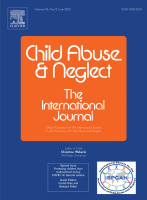Demographic Data
|
Sources: World Bank, UNDP, UNAIDS, DHS 2013 |
Displaying 2551 - 2560 of 14391
The current discussion paper explored the impact of COVID-19 on child maltreatment reports and CPS responses by comparing countries using available population data.
Join the Prevention Collaborative for a conversation on the process, experiences, and challenges of (1) the ongoing integration of IPV prevention and gender into the Investing in Children and their Societies (ICS) Skilful Parenting Programme, and (2) inclusion of VAC in the Indashyikirwa couples IPV prevention programme.
UNICEF Zambia is seeking a consultant to undertake a comprehensive workload study targeting 15 district social welfare offices (DSWOs) to determine the optimal workload for DSWOs which will inform planning for future workforce needs for the Department of Social Welfare.
The WHO South-East Asia Regional Office in collaboration with UNICEF organized a 3-day virtual meeting from 27 to 29 April, 2021.
This second volume of the special issue “Protecting children from maltreatment during COVID-19" is a continuation of the first and comprises studies intended to address two core questions: (1) how does COVID-19 impact the rates of child maltreatment (CM); and (2) how does COVID-19 impact the delivery of child protective service responses.
In this article, researchers Philip Fisher, Joan Lombardi, and Nat Kendall-Taylor present data from the RAPID-EC U.S. national survey of families with young children and look back at three overarching findings from the first year of the survey.
Drawing on 50 qualitative interviews with children and young people currently or previously living in residential care, as well as a range of social workers and programme staff, this study identifies the highly relational lives of children and young people who cite extensive and close relationships with residential care staff, peers and family.
This article presents findings from an exploratory in-depth qualitative research project with seventeen child welfare professionals exploring their permanency decisions with regards to Looked after Children.
This course examines best practices in child and family policies, advocacy, financing, and pathways to scale—showing how to generate an innovative, scalable intervention strategy that supports early childhood development.
This is a recording of the National Launch of the UN Global Study on Children Deprived of Liberty in Cambodia, conducted on 22 April 2021.

